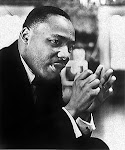I've been thinking a lot lately about Harriet McBryde Johnson, a lawyer, author, and disability rights activist who died in 2008. I've been reading her excellent autobiography Too Late to Die Young, and seeking out her other writings to help guide me in striving to raise my boy to be a proud trouble-maker following in her tiretracks.
I imagine I'll post more thoughts on her writings and perspectives later, but for now, just two things:
First, I suggest reading her "Unspeakable Conversations" essay from the New York Times magazine in 2003. Here's the official link (subscription required) http://www.nytimes.com/2003/02/16/magazine/16DISABLED.html.
This essay comes out of well-known debates she had with philosopher Peter Singer. I read a good deal of Peter Singer's writings long before ever having a connection to disability issues, and it's wonderful to read Johnson's treatment of some of his most controversial philosophical positions. An interesting note is that Peter Singer came to respect and like Harriet Johnson a great deal and wrote an obituary for her after she died.
Second, I just have to share one of the most wonderful lines from Johnson's autobiography:
"When I die, I might as well die alive."
CONVERSATIONS ABOUT INTER-ABLED ROMANCE, part 5
11 years ago










I always keep this quote as I read and write about disability and citizenship.
ReplyDelete"The judges of normality are present everywhere. We are in the society of the teacher-judge, the doctor-judge, the educator-judge, the 'social-worker'-judge; it is on them that the universal reign of the normative is based; and each individual, wherever he may find himself, subjects to it his body, his gestures, his behaviour, his aptitudes, his achievements." --Michel Foucault, Discipline and Punish
Or as Jonathan Mooney puts it, "Normal people suck!"